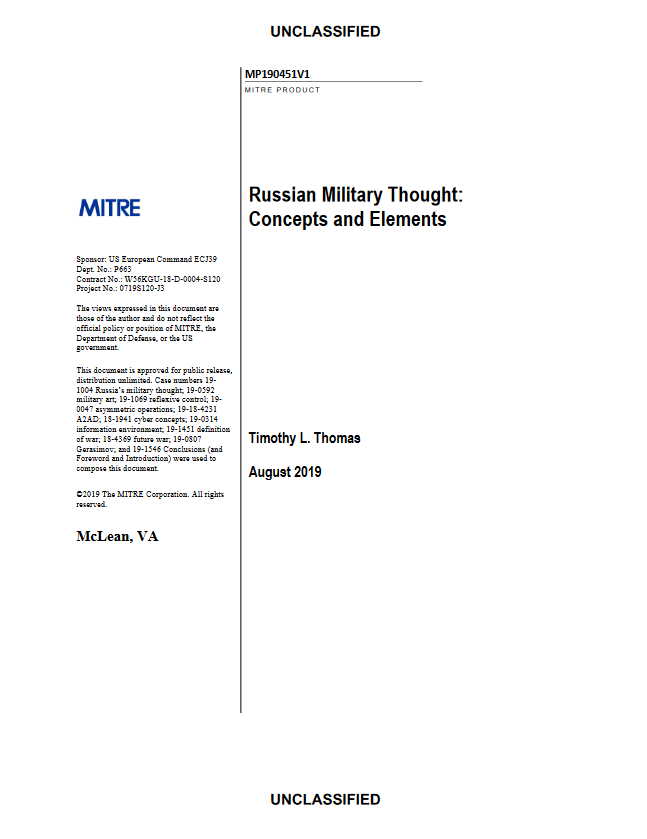(Click image to download book.)
Technology has dramatically increased the speed at which decisions must be made, expanded the spectrum of military thought (from the strategic to the planetary), and focused more attention on innovative thinking and risk-taking. This report, Russian Military Thought: Concepts and Elements, considers technology’s impact on military thought while also considering the latter’s historical legacy passed from the Soviet to the Russian period. Two issues are thus at play in the report, traditional ones and those associated with information-age advances. Initially, the report examines several concepts from the Soviet era still in vogue today, such as the forms and methods of warfare, forecasting, and the initial period of war, among others. The past remains important for the present and continues to affect the way Russia analyzes its situational context. Next, how these basic concepts are applied to information-age advances are examined. For example, there are Russian-authored articles on the forms and methods (traditional thought) of network-centric conditions, aerospace defense, and cyber issues (information-age thought), among others. Forecasting must assess the impact on the nature of war from weapons based on new physical principles. The speed of cyber operations indicates that forces must be prepared now for the initial period of war (IPW). Planning tomorrow for a surprise attack is more than a day late, as the cyber IPW may result in the conflict’s end before it starts. The report is of interest for its focus on purely Russian military thought. It attempts to avoid mirror-imaging Western concepts (hybrid, grey zone, etc.) onto Russian military thinking. It represents the first focused study on the topic of military thought since the edited 1981 book Soviet Military Thinking. The report in no way replaces that volume but rather supplements it.

